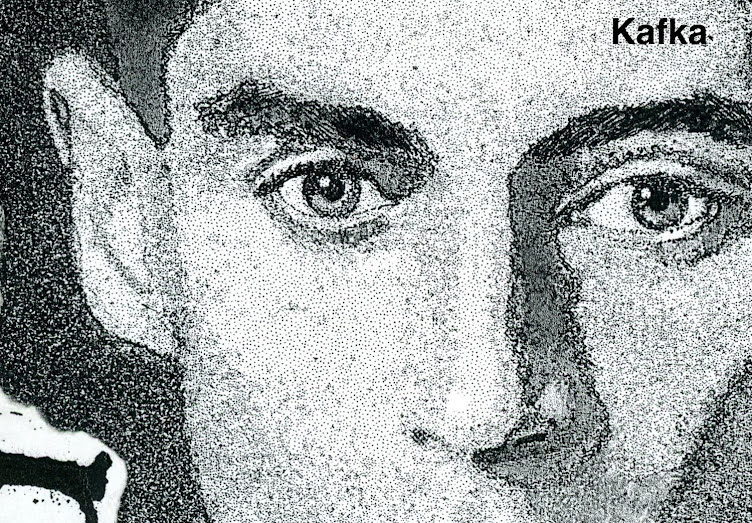Hi, friends. I know that I posted this very late, and I certainly won’t penalize you if it isn’t done before class tomorrow. Please try to get it (and any missing blogs) done by Saturday morning.
“‘The only thing I can do now is keep my mind calm and analytical to the last. I’ve always wanted to seize the world with twenty hands, and what’s more with a motive that was hardly laudable. That was wrong; do I want to show now that even a yearlong trial could teach me nothing? . . . I’m grateful they’ve sent these half-mute, insensitive men to accompany me on this journey, and that it’s been left to me to say myself what needs to be said” (228).
“K. knew clearly now that it was his duty to seize the knife as it floated from hand to hand above him and plunge it into himself. But he didn’t do so . . . He could not rise entirely to the occasion, he could not relieve the authorities of all their work; the responsibility for this final failure lay with whoever had denied him the remnant of strength necessary to do so” (230).
“Logic is no doubt unshakeable, but it can’t withstand a person who wants to live” (231).
“With failing sight K. saw how the men drew near his face, leaning cheek-to-cheek to observe the verdict. ‘Like a dog!’ he said; it seemed as thought the shame was to outlive him” (231)1.
- So this is it--Josef K. dies at the hands of two “‘old supporting actors’” who seem to be employees of the court (226). Did you see his execution coming? Did it make sense? Was it satisfying in any way? That is, to you, how did it work as an ending?
- Does K.’s ordeal teach him anything?
- What does K. mean to say with his last words, “‘like a dog!’”?
_________________
1 You probably noticed that this quote suggests that the two men expect K. to deliver a “verdict” as he dies. The word “verdict” is highly provocative in the context of the court and the officials, as it suggests that K. himself is a (the?) judge. Where Mitchell uses “verdict,” many other translators opt for “result.” I’m going to investigate the text of the novel’s end to see if his use of “verdict” is appropriate. If it is, we have a lot to discuss.
